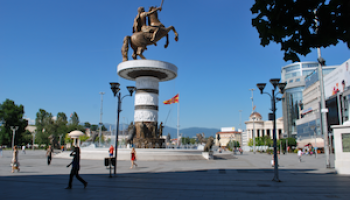“We need to see the reforms, especially in the rule of law, be implemented more vigorously and produce sustainable results,” said Commissioner for European Neighborhood Policy and Enlargement Negotiations Johannes Hahn in a statement.
“These reforms are not ''for Brussels'' – effective judiciary, effective fight against corruption and organised crime, efficient public administration, stronger economy – all this will directly benefit the region and its citizens, and Europe as a whole.”
EU membership has been instrumental in reforms in the Balkans, with harmonization of laws with EU regulations mandatory for accession.
“The message we are sending today is that this decision to recommend opening negotiations is an encouragement to these countries to continue on the path of reforms,” said EU foreign policy chief Federica Mogherini. She said the decision had been based on stringent assessments by the EU.
Macedonian Prime Minister Zoran Zaev promised reforming the current administration to stamp out corruption, according to the Associated Press.
The country was granted EU-candidate status in 2005, but has been in a war of names with Greece. Currently, Macedonia is officially known as the Former Yugoslav Republic of Macedonia in a compromise with Greece which has a northern region called Macedonia.
Albania’s PM Edi Rama also hailed the decision saying during a press conference that Albania, who became a EU candidate in 2014, would be “entering into a new stage, more difficult, of the reforms and further escalation of the fight against crime and corruption.”
Albania scored 38 out of 100 on Transparency International’s Corruption Perceptions Index in 2017, while Macedonia scored 35. Both indicate high levels of perceived corruption.






